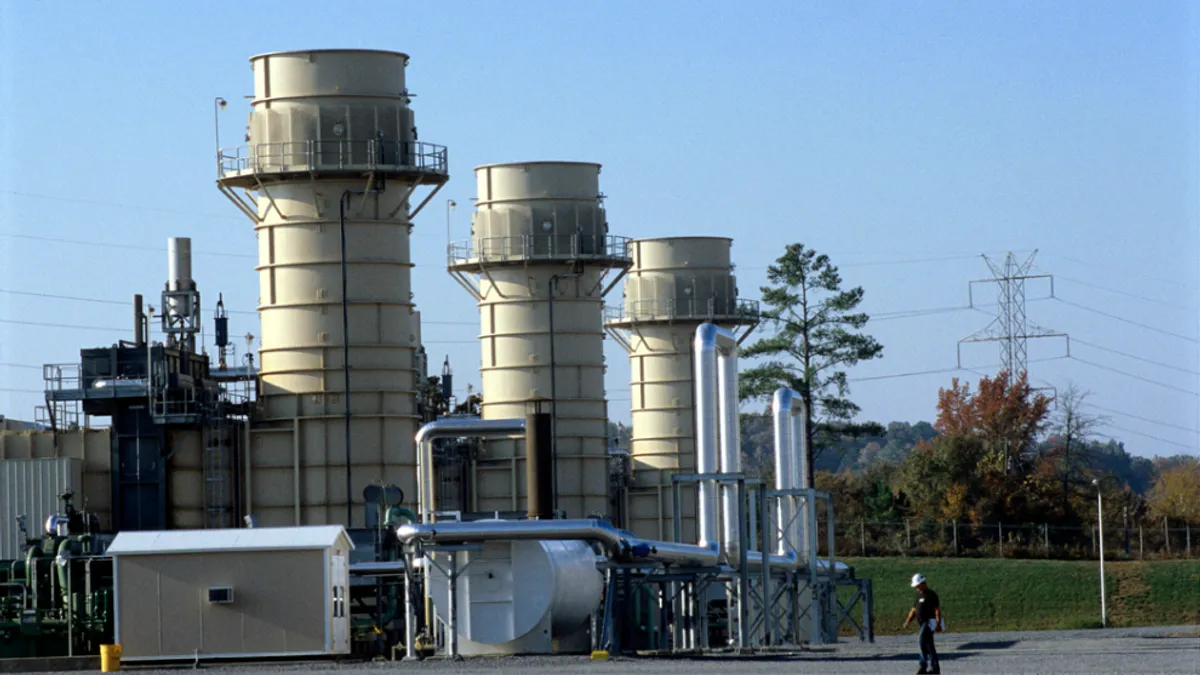Dive Brief:
- The Nort Carolina Utilities Commission (NCUC) has given Duke Energy approval to construct two gas-fired turbines near Asheville which will total 560 MW of capacity and replace a coal facility operating in the state since the mid 1960s.
- But regulators stopped short of approving Duke's full proposal, nixing a third gas-fired unit in a decision that largely mirrored NCUC staff's opinion, issued last month.
- Critics of the decision, which arrived via a 45-day expedited process, say the project avoided deep scrutiny and they intend to appeal. Consumer advocate NC WARN argued that regulators never pressed Duke to explain why it must build new plants "instead of using a large excess of power supply within and surrounding its own service areas."
- Duke is promising to work with communities to delay or find ways around the need for new peaking generation, and has indicated it is planning to file applications for solar generation and utility-scale storage in the future.
Dive Insight:
For Duke, two out of three ain't bad. For environmentalists, it's two too many.
The big issue in Duke's case was whether the third unit was necessary — though environmental groups cast doubt on the other two as well. The approved pair will replace the 379 MW coal plant with 560 MW of gas power. The rejected unit would have added another 192 MW, according to the commission's order.
Duke said it is working with Asheville, Buncombe County and surrounding communities to "explore solutions that will reduce energy use in the fast-growing, nine-county Duke Energy Progress-West region, which serves more than 350,000 people."
But for environmentalists, the expedited process meant a lack of review and greater reliance on gas.
NC WARN called the decision an "ominous signal that [regulators] will encourage more expansion of climate-wrecking gas burning by Duke Energy," and vowed to appeal the ruling.
"Duke never had to explain its claim that it must build new plants instead of using a large excess of power supply within and surrounding its own service areas," the group said. "Duke never had to substantiate its claim that customer demand will soar."
"We plan to appeal the closed, pro-Duke process that led to this decision and unneeded plant. In addition to being unconstitutional, it’s a lousy way for state government to operate," the group concluded.
The new solar and storage facilities Duke will propose will include at least 15 MW of new solar generation after the Asheville coal units are offline and coal ash excavation is complete, the company said. Duke is also seeking approval to install at least 5 MW of utility-scale electricity storage over the next seven years.













